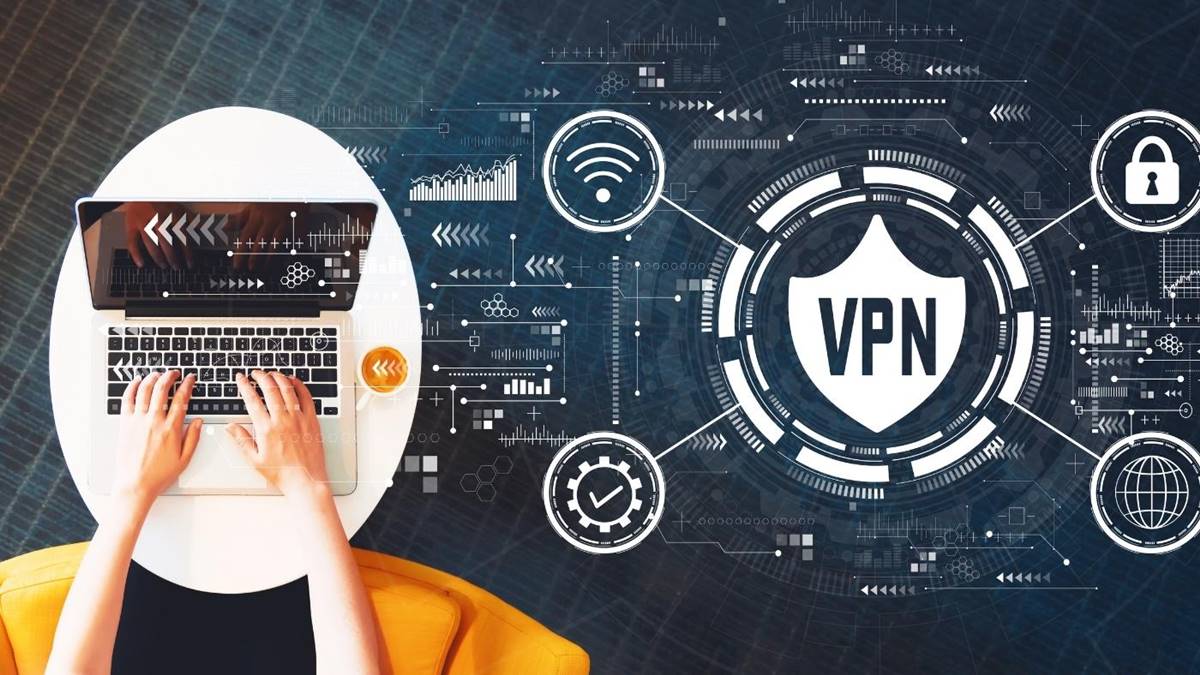Learn what a VPN is and see what the benefits of hiring this service are. This way, you can find out how to protect yourself from bad actors when using public Wi-Fi networks.
Additionally, access previously disabled regional content by simply changing the address of your VPN network. All this with the quality and technology of data encryption.
Are you interested? Read our article until the end, and discover these and many other benefits of this technology. Good reading!
What is VPN and what is it for?

VPN is a network that will help you disguise your identity online. Thus, when using a public connection network, the user prevents hackers and other people with bad intentions from accessing the device and stealing data.
In free translation, the acronym VPN means “Virtual Private Network”, and its operation takes place through a cryptographic system that occurs in real time.
You've probably heard of encryption, and know that this system helps protect your data from access by third parties. Transforming them into complex codes, just like the passwords on padlocks and safes.
Thus, a VPN network hides the computer identification number (IP), causing a temporary number to be created for the user. This number is configured and run by a VPN host.
This way, third parties will not be able to access pages you have visited, nor have access to your passwords or any data you provide online. And, even if a hacker has access to something, they will see the information in an “uncharacterized” format and will not be able to understand what it is.
Now that you know what a VPN is, check out the following topic to discover the advantages of hiring it.
What are the advantages of a VPN network?
So you already know what a VPN is and how the network works?! Excellent! Therefore, in this topic, we will mention some of the main facilities when using the service. See below:
- Cutting-edge encryption: With the encryption system, access to your data is almost impossible. And, even highly experienced hackers would take years to decipher the code created for use on the public network;
- Protected location: the VPN network protects your device from tracking, as its server is located in another country, and, even if some providers record your actions, they do not pass it on to third parties;
- Access to regional content: the traditional network prevents access to local content that, with the VPN network, the user can access and use safely. To do this, simply change the network to a server in another location;
- Sending and receiving data securely: As previously stated, sending and receiving important files will be encrypted. Like this, those who work from home, study or buy online can rest assured, as their information will be protected.
How and when to use a VPN?
When discovering what a VPN is, users begin to wonder in what situations they should use it. Therefore, we are going to give you some tips on using the network. Below are some places where using a VPN is appropriate:
- At the mall;
- In stores of any type;
- In offices/hospitals;
- In the beauty salon, in spas and in the club;
- At the gym, at the supermarket and in the parking lot.
These are some examples of public spaces where the WiFi network is shared. In these situations, the devices are vulnerable to attacks of all types. Therefore, if you are using a connection network that is not known and trusted, you must activate the VPN service to protect yourself.
What are the main VPN options on the market?
In addition to knowing what a VPN is, the user needs to know the main modalities of the service. This makes it easier to define which one to implement on your device, be it a cell phone, notebook, tablet or others.
Check out the three most hired modalities today, in the list below:
- SSLVPN: In most cases, this solution is used to protect private devices, using a corresponding hardware box. Therefore, to install the network, the user must have an HTML-5 browser. And finally, create login with username and password.
- Site-to-Site VPN: If your company has integrated systems (LAN TO LAN), this is a great option to protect mutually accessed sites. This version is very powerful and complex, and is usually used by large companies, with a large number of devices;
- Client-to-Provider VPN: From the configuration of the computer or device, the user can link the use of the network to their company's VPN. So, the VPN network will encrypt your connection to protect your data.
Conclusion
We conclude that the VPN network is very safe, and helps users use internet networks in public spaces. By discovering what a VPN is, the user allows their data to be protected, due to the high-quality encryption offered by the server.
Thus, when using the service, the user confuses possible hackers and third parties, guaranteeing access to social networks, search engines and online stores, without experiencing any problems.
Do you want access to more information about technology and related areas? Click here!
